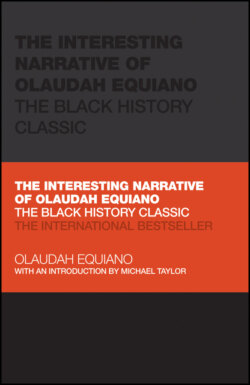Читать книгу The Interesting Narrative of Olaudah Equiano - Olaudah Equiano - Страница 11
THE NARRATIVE
ОглавлениеEquiano's Narrative was not published into a vacuum; nor did he publish his autobiography as an unknown. On the contrary, he wrote with the political and financial support of many significant figures in British society who demonstrated that support by subscribing to the first edition; that is, they committed to buy a copy and paid the price up-front, so that Equiano could live upon these early proceeds as he concentrated on writing. Many of the Narrative's subscribers (listed at the start of the book) will be familiar to even casual students of Georgian history: the Prince of Wales, the future Prince Regent and George III; the (Grand Old) Duke of York; the abolitionists Thomas Clarkson and James Ramsay; the author Hannah More and the businessman Josiah Wedgwood; founder of Methodism John Wesley; and a healthy dose of MPs and peers besides. Into their hands Equiano now placed the most affecting account of enslavement – and African intelligence and ingenuity – which had been written.
As the opening passages of the Narrative make clear, slavery was nothing new to Equiano. At home in Benin, the houses of masters and their slaves made up the towns and villages. Equiano's own father had been a slaveholder, and the local slave trade was frequently the cause of ‘irruptions of one little state or district into another’. Yet in Equiano's view there were plain differences between African slavery and that into which Europeans forced him and so many millions of others. For one thing, Equiano almost appears to regard African enslavement as justifiable. ‘Sometimes indeed we sold slaves to them’, he writes of his neighbours, ‘but they were only prisoners of war, or such among us who had been convicted of kidnapping, or adultery, and some other crimes, which we esteemed heinous.’ In short, slavery was dependent on the character of the person, not their skin colour. ‘But how different was their condition from that of the slaves in the West Indies!’ Equiano exclaims. ‘With us they do no more work than other members of the community, even their masters; their food, clothing and lodging were nearly the same as theirs … Some of these slaves have even slaves under them as property, and for their own use.’
This contrasted sharply with what Equiano experienced at the hands of British slave traders. Just as Mary Prince would later educate British readers on the atrocities inflicted upon enslaved people in the West Indies of the 1820s, Equiano gave the readers of the 1780s a painful and often shocking account of the odious commerce. ‘Slaves are sometimes, by half-feeding, half-clothing, over-working and stripes, reduced so low’, he lamented, ‘that they are turned out as unfit for service, and left to perish in the woods, or expire on a dunghill.’ This hatred of slavery would not, however, prevent Equiano from buying enslaved people to work on the plantation that he sought to establish on the Mosquito Coast. Moreover, when Equiano eventually abandoned the project it was not because this apparent toleration of slavery had expired. Rather, it was because he disliked the lifestyle: ‘our mode of procedure and living in this heathenish form’ he writes, was ‘very irksome’.
